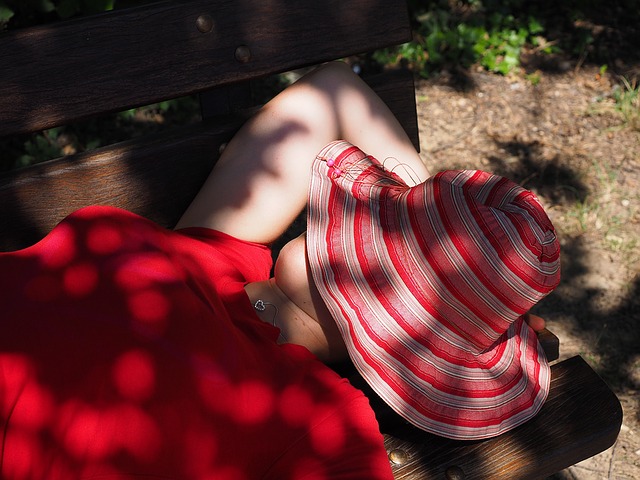As the final few weeks of the school term pass by, and the exam period finishes for those in GCSE and A level, many students and parents are turning their thoughts to the summer break ahead.
The summer holidays allow us time to rest and get some perspective on our progress in life, but they also provide us the time to tackle things that we often don’t have time to do during term time.
Here’s a list of a few of the things that students should consider to have their most productive summer ever: –
Resting & Relaxing
Making productive use of your summer break to get an academic edge and to further career prospects is a great idea, but it’s important to remember that as well as experiencing a fierce level of competition from fellow students, young people today are under an unprecedented amount of pressure to perform and succeed. The summer break (particularly for year 11 and 13 students) can provide students with just that – a break. The first few weeks of summer can be a great time for students to rest & relax, allowing them to forget about studying for a few weeks and recharge their batteries in preparation for the year ahead.
> Britain’s 30 Best Seaside Towns

Taking up a New Skill or two!
Working on new skills and hobbies that aren’t related to your chosen school subjects can be a great way to relax, whilst also developing yourself in a way that boosts your CV and impresses future employers. Career prospects aside, working on areas outside your chosen domain is one of the best ways to become a well-rounded and interesting person, expanding your horizons and becoming an effective adult.
Here are some ideas we like:
- Learn to Code: Fast Company described coding as “The Most Important Job Skill Of The Future”, and it’s one that’s accessible to anyone, whether you decide to learn at home or at boot camp in your local area. UCL* in central London (an Excel in Key Subjects teaching centre) run weekend boot camps – Code at Uni
- Drawing/Painting: Even those who don’t consider themselves ‘artsy’ would do well to consider an art course. Painting and science have been closely associated historically, and up until the 19th century, many scientists like William Blake were also artists. Experience in both the artistic and scientific fields can demonstrate to university entrance boards as well as company HR departments that you’re a well-rounded person and a critical thinker – Amazon: Drawing on the right side of the brain
- Learn a Language: Learning a second language slows the aging of the brain, opens up new possibilities for travel and future jobs and is well respected by the top universities. Foreign languages aren’t considered a great strength of students in the UK, so picking up a second language can be a great way to stand out from the crowd, and with the online resources available, attending classes in person may not even be necessary – Tim Ferriss: Language Learning Tips

Getting Work Experience
For young students looking to eventually progress to university with the aim of securing a top graduate job, it’s important to remember that student internships whilst at university (usually in the summer of the second year, for students on a three-year course) are one of the main routes to secure a top graduate job – but getting that summer internship usually requires a history of work experience – either in first year of University or before, whilst still in school or college. For year 11-13 students, reaching out to family, friends and industry contacts can be a great way to start the conversation around a work experience placement in your chosen field, but getting a regular paid summer job is also a great way to bolster student’s income whilst gaining valuable work experience – perhaps funding one of the other ideas listed on this page.
> Groundwork: Finding work experience
Making some Flash Cards
Flash cards are the most efficient way for students to commit certain types of information they need for exams to their long-term memory – we’re not talking about physical paper flashcards, but rather spaced repetition software on a computer or smartphone that uses algorithms to help learn a large number of items and retain them indefinitely in memory.
Electronic flashcards are commonly used by language students and medical students due to the large amount of information and terminology they are required to retain, but the problem is creating them can be time-consuming. The summer holidays can provide a great time for students to learn how to use a flashcard system and start creating their flashcards for the year ahead.
> Wikipedia: Spaced Repetition
> How to learn (and never forget) French vocabulary
Volunteering
Volunteering is something many people want to get involved in, and the time and space afforded by the summer break – when the pressures of school disappear temporarily – can be a great time to kick things off.
Giving back to a cause that’s close to your heart is a rich and rewarding experience, and volunteering for a large international charity also looks good on your CV and will help you build skills in new areas. The breadth of volunteering opportunities available also means that there’s something out there for everyone – whether you want to spend an afternoon here and there close to home or you’re looking to spend a large chunk of your summer abroad, working for a charity.
To start, think about what areas you want to make a difference in. Decide what commitment you want to make, and whether you’re going alone or with friends, and starting researching charities, many of which will have opportunities on their website. Reach out to the organisations directly, or check out the links below for a more comprehensive guide on how to get started.
Reading
We’ve said this before, so we’ll say it again: Amidst the array of attractive distractions that we call gadgets, a lot of young adults forget that there is a lot to be gained from reading. Not only can you brush up on your general knowledge and wisdom(!), but you might actually get into it! Reading used to be the primary pastime of kids a few generations ago and there’s got to be a reason why we’re so adamantly encouraged to take it up. Not only will it make you more knowledgeable, it will also give you skills of eloquence, a wider range of vocabulary, improved writing and communication skills. All of these attributes will boost your essay and interview techniques, placing you well ahead of the dull crowd.
And if that doesn’t entice you, remember the old saying: “Readers are leaders.” When Warren Buffet was asked the key to success, he pointed to a nearby book and replied: “Read 500 pages like this every day. That’s how knowledge works. It builds up, like compound interest. All of you can do it, but I guarantee not many of you will do it”.
• The tragic tale of why nobody reads anymore and how to use this summer to become a book lover
• The Top 100 Fiction Books of All Time
• The Top Rated Non-Fiction Books
Getting a Head Start on Your Studies
Getting a head start on your studies can be one of the highest leverage points when it comes to making a productive use of your summer. Understandably, many students start the year a little rusty after their summer break, but students who let their whole summer pass by without thinking about their studies are doing themselves a disservice. The teaching material covered at the beginning of the year is just as important (and as likely to come up in exams!) as material covered at the end of the year, but many pupils come out of the starting blocks a little slow, and take their time to get back into the swing of the things at the beginning of the year.
At Excel in Key Subjects, our Summer booster courses are designed to help students get an edge when starting back at school, and provide 12 hours of teaching at GCSE, and 20 hours of teaching at A level – Summer Booster courses at Excel in Key Subjects – Click Here
Alternatively, our Saturday classes, running during term time, provide expert teaching in the subjects that matter most, allowing students to reach their full potential and achieve to the best of their ability – Saturday Classes at Excel in Key Subjects – Click Here
*This course is not provided or endorsed by UCL

